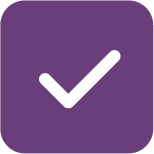Main Menu
Background
Choking is a life-threatening emergency which requires treatment as soon as possible. Several different choking treatments are taught in first aid courses, including abdominal thrusts, back blows, and chest compressions/thrusts. Suction devices are also available to purchase by the public.
Choking treatment needs to occur before paramedics arrive, so bystanders are crucial to saving a choking person’s life. In Alberta, about 35% of all choking injuries are children who are first treated by their parents or caregivers. Despite treatment guidelines remaining unchanged for some time, there is a large variety in how parents/caregivers respond when their child chokes. Our study aims to explore parents’/caregivers’ experiences to answer the questions:
By learning more about how well the different treatments work, how safe they are to use, and how easy they are to apply, we believe that we can improve how we respond to choking injuries, and improve patient outcomes.
Roles and Responsibilities
We are seeking a parent or caregiver who has responded to a choking injury for their child or who cares for a child at increased risk of choking to help provide the research team with valuable context throughout our study.
Specific roles would include:
Training will be provided as needed at various stages of research. The patient partner should be comfortable with email communication, and word document processing software (e.g., Microsoft Word).
Time Commitment
The proposed project is planned to occur over a year (Aug/Sept 2025 – Aug/Sept 2026)
Compensation/Reimbursement
There is a $125 honorarium available for collaboration in the brainstorming sessions, and review of the interview guide. If the brainstorming sessions occur in-person, parking costs will also be covered.
If the patient partner is also interested in assisting with reviewing the interview transcripts and helping form the data outputs, they will also be included as a co-author on the manuscript, as well as included on all dissemination outputs. Unfortunately, at this time there is no additional funding for patient partner compensation for this part.
For more information or to apply
Cody Dunne
cody.dunne@ucalgary.ca
Let us know how you want to stay connected


 News + Events
News + Events

 Patient Partner Research Opportunities
Patient Partner Research Opportunities

 I agree to receive occasional emails from AbSPORU.
I agree to receive occasional emails from AbSPORU.University of Calgary Foothills Campus
3330 Hospital Dr NW
Calgary, AB T2N 4N1
University of Alberta North Campus
Edmonton Clinic Health Academy (ECHA)
11405 87 Ave NW
Edmonton, AB T6G 1C9
The Alberta SPOR SUPPORT Unit operates on and acknowledges the lands that are the traditional and ancestral territory of many peoples, presently subject to Treaties 6, 7, and 8. Namely: the Blackfoot Confederacy – Kainai, Piikani, and Siksika – the Cree, Dene, Saulteaux, Nakota Sioux, Stoney Nakoda, and the Tsuu T’ina Nation and the Métis People of Alberta. This includes the Métis Settlements and the Métis Nation of Alberta. We acknowledge the many First Nations, Métis and Inuit who have lived in and cared for these lands for generations. We make this acknowledgment as a reaffirmation of our shared commitment towards reconciliation, and as part of AbSPORU’s mandate towards fostering health system transformation.
© 2025 AbSPORU